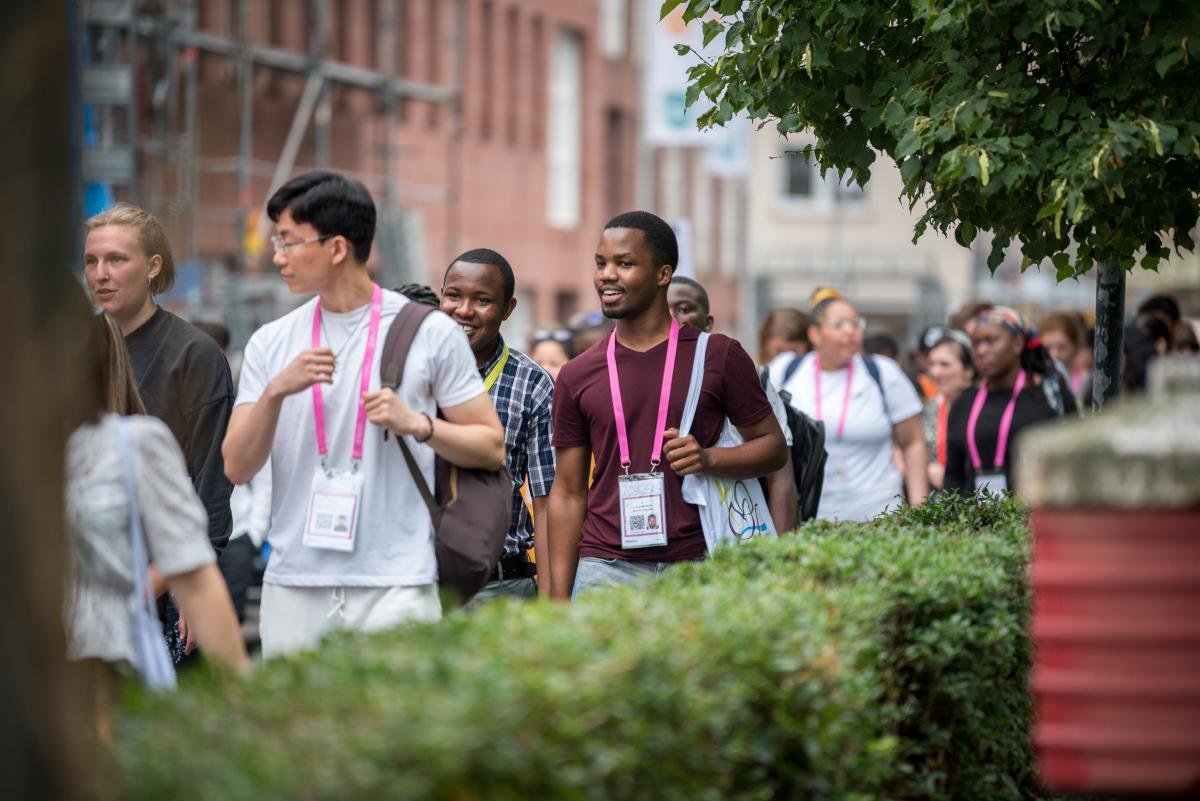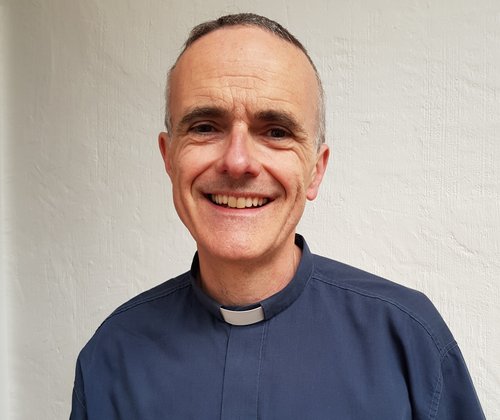Praying for hope and reconciliation at the WCC Assembly

Christians from across the world are gathering in Germany this week for a major ecumenical event - the 11th General Assembly of the World Council of Churches. Among those from Wales are three representatives from the Church in Wales – the Bishop of St Asaph, Gregory Cameron, Mandy Bayton, from the Diocese of Swansea and Brecon, and the Revd Canon Ainsley Griffiths, Director of Faith, Order and Unity. The theme is hope and reconciliation, writes Canon Ainsley (pictured).

A long train journey from Carmarthen to southern Germany has given me a great opportunity to write these thoughts on the eleventh General Assembly of the World Council of Churches (WCC). As I travel thousands of others will be taking similar journeys, most much longer than mine, to participate in one of the world’s largest Christian gatherings, an event that takes place only every eight or nine years. The last was held in Busan, South Korea, in 2013, in a culture with both difference and similarity to our own European setting, a place of democratic freedom and material prosperity, yet one where Christianity is often more vibrant than in our own secularised western setting. This year’s General Assembly (the first to be held in Europe since 1968) takes place in the flourishing city of Karlsruhe on the Rhine river, just a few miles from the border with France. Whilst relations with the immediate neighbours are good these days, this was an area that knew conflict in fairly recent times, with land disputes in regions such as Alsace and Lorraine. Though these regions now belong to France the many German-sounding place names hint at past tensions.
To be meeting in a place of borders and disputes, of hope and healing, may not be a bad thing for a major ecumenical event such as this. For centuries the divided body of Christ has not been the answer to Jesus’s prayer to the Father, the night before he died, “that they all may be one … that the world may believe” (John 17:21-23). For too long we have been divided into Orthodox, Anglicans, Methodists, Presbyterians, Baptists, Reformed, Pentecostals and a host of other traditions. We have allowed our disagreements over certain doctrines and practices to drive us apart rather than inspiring us forward to discover a deeper unity through our shared belonging to Jesus Christ, crucified and risen. Like the French and Germans fighting over land in the past we have sought to stake our own exclusive claim on the truth rather than being open to what is true – and good and beautiful – in others who declare faith in the risen Saviour. Our arrogance has led us to close our hearts to those who also belong to Christ and instead of heeding his command to “love one another as I have loved you” (John 15:12) we have allowed lovelessness to take root, often at terrible cost.
With all of that in mind, the theme for this year’s WCC General Assembly is particularly apt, even more so when we consider the violence and fragility of so many parts of the world today. Taking 2 Corinthians 5:14 as its inspiration it declares that “Christ’s love moves the world to reconciliation and unity”, a transformation which is so desperately needed in our violent and fragile world. The preparatory handbook tells us that the theme draws on the very heart of the gospel that offers to the world the depths and wonder of the love of God the Holy Trinity. It is rooted in God’s design for the unity and reconciliation of all, a design made visible in the incarnation of the love of God in Jesus Christ.
So God’s love is about establishing unity among all people, a unity which echoes the deepest unity imaginable, namely the perfect communion of Father, Son and Holy Spirit. This isn’t a nice religious sentiment or a pious thought to keep for Sundays but a costly, life-changing commitment to see a world reconciled to God and itself. So it isn’t just about bringing separated Christians together in worship and witness (though that remains vital) but it’s about our relationship to those who beliefs and practices are very different to ours. It is also about justice and the integrity of creation as the impressive list of the WCC’s areas of work shows – from strengthening Christian concern for human rights, gender justice, migration and health to deep reflection on the challenges posed by xenophobia, racism and populist nationalism.
One of the areas which will be of particular interest to me will the WCC’s strong commitment to environmental issues and its prophetic work. We’ve heard in recent days of the devastating floods in Pakistan, almost certainly aggravated by climate change, but also of terrible fires in many parts as well as famine driven by drought in others. Our weather is becoming increasingly unpredictable and people are suffering greatly as a result. And we know that the changes are not just happening in distant nations but also our own as we’ve enjoyed (or endured) record temperatures this summer as well as the problems of drought still affecting many parts.
Clearly, the WCC alone cannot solve these problems but it can provide a forum for Christians throughout the world who can be change-makers in their own small ways.
It will bring together those from the Pacific islands who are seeing their homes gradually being lost to rising sea levels to encounter those who people have to move their homes and herds as already arid regions become uninhabitable. Whether there is too much water or too little climate change is forcing people to migrate in huge numbers, dividing families from their ancestral lands, increasing misery, conflict and strain. And we from the wealthy, polluting and guilty west will see how our affluence and greed have driven terrible and unimaginable destruction. It will be sobering to hear the stories of suffering but also voices of hope, a hope that springs from faith in God who loves the world and desires to see it flourish.
While many of the issues I’ve mentioned are big and abstract, theological and technological, an event such as this can cut them down to size, helping us see that these are really about human lives like yours and mine. I close with an opening thanksgiving that will be prayed at the Assembly:
The 11th Assembly of the WCC
Find out more